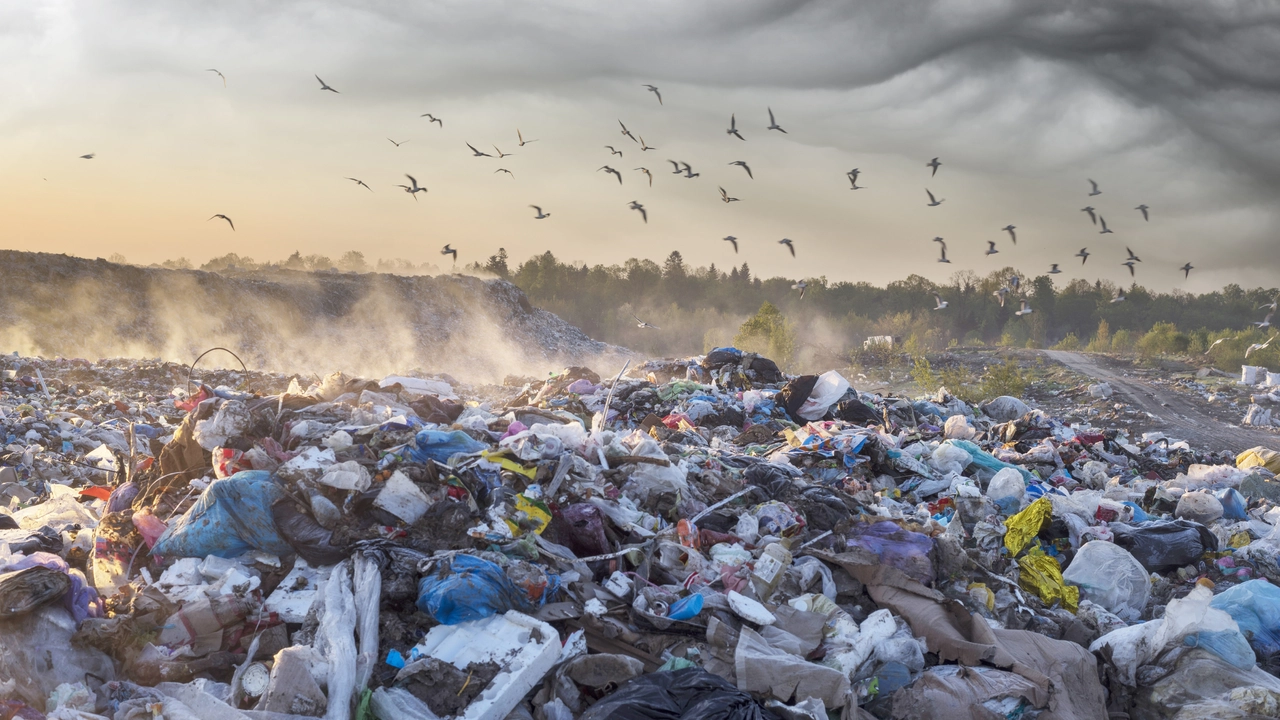What problems do landfills create for the environment?

Understanding Landfills
Our first stop in this journey of understanding the environmental problems caused by landfills is to know what landfills are. Landfills are dedicated sites where waste is disposed of by burying it under layers of earth. While this method of waste management has been in use for centuries, it's not without significant environmental implications. In this section, we'll delve into how landfills work and why they've become a default solution for waste management.
Yet, we'll also introduce the substantial environmental problems they're causing, setting the stage for a more in-depth discussion in the following sections.
The Greenhouse Gas Emission Problem
One of the major environmental problems caused by landfills is the emission of greenhouse gases, particularly methane. When organic waste decomposes in landfills, it produces methane, a potent greenhouse gas that contributes significantly to global warming and climate change.
Unfortunately, not all landfills have the necessary infrastructure to capture this methane, resulting in it being released into the atmosphere. This section will provide a comprehensive look at how methane is produced in landfills and its impact on our climate.
Land Contamination
Another significant problem associated with landfills is land contamination. Landfills are filled with a variety of waste, including hazardous materials that can leach into the soil over time. This leaching process can contaminate the ground, making it unsafe for plant and animal life and potentially infiltrating groundwater supplies.
This section will detail how land contamination occurs and the consequences it has for our environment.
Water Pollution
Landfills also contribute to water pollution. When rainwater seeps through the waste, it forms a toxic liquid known as leachate. If not properly managed, leachate can pollute surface and groundwater, impacting aquatic life and human health.
This section will explore how this process happens and its implications for our water resources.
Impact on Wildlife and Biodiversity
Landfills have a significant impact on local wildlife and biodiversity. They can disrupt habitats, attract scavengers, and cause an imbalance in local ecosystems.
This section will provide a deep dive into the ways landfills affect wildlife and biodiversity, shedding light on a less discussed but critical aspect of the landfill problem.
Air Pollution
In addition to releasing methane, landfills also contribute to air pollution by generating unpleasant and potentially hazardous odors. This section will delve into the causes and effects of air pollution from landfills, discussing how it affects not only the environment but also human health.
Visual Pollution and Loss of Land
Landfills also cause visual pollution and lead to a loss of land that could be used for other purposes. They are often viewed as unsightly and can lead to a decrease in property values in the surrounding areas.
This section will explore the issue of visual pollution and the loss of land in more detail.
The Problem of Non-Biodegradable Waste
A significant portion of the waste in landfills is non-biodegradable. This means it will not decompose over time, causing the landfill to fill up faster and remain hazardous for a much longer period.
This section will examine the problem of non-biodegradable waste in landfills and its long-term implications.
The Challenge of Managing Landfills
Managing a landfill is a complex process that requires careful planning and execution. However, despite best efforts, many problems can arise, leading to further environmental damage.
This section will discuss the challenges of managing landfills and how they contribute to the overall problem.
Alternatives to Landfills
Given the numerous environmental problems associated with landfills, it's essential to consider alternatives. This final section will explore some of the most promising alternatives to landfills, such as recycling, composting, and waste-to-energy technologies.
We'll also discuss the benefits and challenges of these alternatives, providing a balanced view on the future of waste management.

Post-Comment